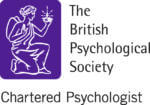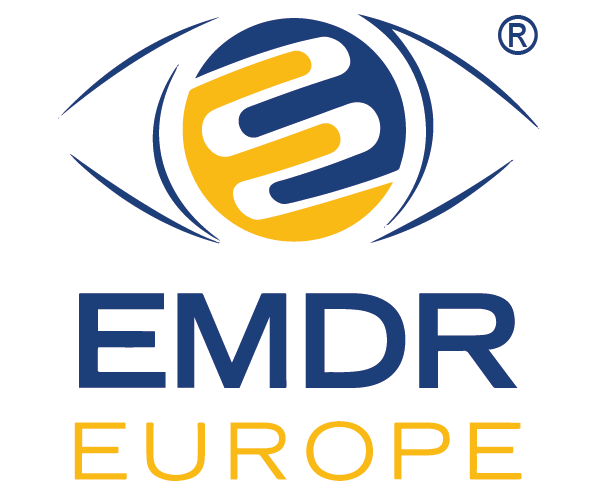Dr Helen Tudor
Chartered Consultant Clinical Psychologist. DClinPsy, BSc (Hons)
A Clinical Psychologist with over 20 years experience working within a range of mental health services. I work with adults and young adults (aged 16 or over). I am also an accredited EMDR practitioner.
Dealing with a mental health issue can be a frightening, lonely and stigmatising experience. It is common, when facing difficulties, to think you’re the only one, that no one can possibly understand, or that you don’t know where to turn for help. You might be looking for understanding – an answer to the question of “why?” or even “why me?”.
Difficulties with our mental health can have a significant impact on daily life. Suddenly, everyday tasks can seem like climbing Everest and activities you used to be able to do with ease are now daunting or you may have stopped altogether. People often come to see me for reasons just like these; you are not alone and things can change. By working together, we will gain a better understanding of your distress and build skills and strategies to cope with your specific difficulties.
Whilst I offer a range of evidence-based therapies (see below for details), my work is always tailored to the particular needs of the individual. In order to benefit most from psychological therapy, I believe a clear focus to our sessions is central. I therefore encourage those with whom I work to identify aims and goals to ensure our work together is as useful as possible. For any therapy to be effective, a strong therapeutic relationship built on empathy, warmth, collaboration and trust is paramount. This is central to my working ethos.
Experience
I have over twenty years of experience working within a range of mental health services. In addition to my private practice, I am currently employed in the NHS as a Consultant Clinical Psychologist, working with adults experiencing severe and enduring mental health difficulties. Within this role I also supervise qualified Principal Clinical and Counselling Psychologists, as well as consulting to wider mental health professional colleagues.
Approach
As a Clinical Psychologist, I am trained to work in a number of different talking therapies. My profession emphasises scientifically-oriented yet compassionate working. Therefore, my practice is always informed by the most up-to-date research and evidence-base, such as the National Institute for Health and Care Excellence (NICE) guidelines. In line with this, my primary model of working is within Cognitive Behavioural Therapy (CBT). However, I also have extensive experience in using “third wave” Cognitive Therapies including Mindfulness-Based Cognitive Therapy, Metacognitive Therapy, Dialectical Behaviour Therapy and Compassion Focussed Therapy. I have also completed full training in Eye Movement Desensitisation and Reprocessing Therapy (EMDR) and have a particular interest in working with trauma. CBT is based on the principle that psychological distress results from unhelpful, negative patterns of thinking. This in turn generates difficult emotions as well as often counter-productive forms of coping (behaviour). CBT seeks to identify unhelpful thinking and behaviour cycles, as well as develop more useful ways of managing. It is a psychological treatment that has been shown to be effective for a wide range of mental-health problems. CBT is recommended by the National Institute of Clinical Excellence (NICE) for anxiety disorders and depression.
Eye Movement Desensitisation and Reprocessing Therapy (EMDR)
EMDR is a therapy used to treat a range of psychological difficulties that typically originate in trauma, such as direct or indirect experiences of violence or accidents. EMDR is recommended by the National Institute of Health and Care Excellence (NICE) for the treatment of Post-Traumatic Stress Disorder (PTSD). The goal of EMDR therapy is to properly process traumatic memories, reducing their impact and helping the person to develop coping mechanisms. This requires a person to recall distressing events while receiving bilateral sensory input, which typically involves side to side eye movements. EMDR is not considered a form of hypnosis. You remain fully conscious and aware at all times during the therapy and have total control over what is happening.
Mindfulness-Based Cognitive Therapy (MBCT)
MBCT is also based on the theory that unhelpful thought patterns lead to psychological distress. However, it differs from more “traditional” CBT in its focus and techniques. MBCT was originally designed specifically to help people who suffer repeated bouts of depression. Whilst it is recommended (by NICE guidelines) for preventing further relapse of depression, it has also been shown to be helpful for a range of anxiety difficulties, as well as coping with physical difficulties such as chronic pain.
Metacognitive Therapy (MCT)
MCT focusses on addressing particular patterns of thinking that are thought to lead to the maintenance and worsening of emotional suffering. This includes thinking and attention that become fixed in patterns of brooding and dwelling (such as spending long periods thinking over past regrets or worrying excessively about the future). MCT has been shown to be most useful for depression and a range of anxiety disorders.
Dialectical Behaviour Therapy (DBT)
DBT is a treatment intended specifically for individuals with self-harm behaviours. Many (but by no means all) people with these behaviours meet criteria for Borderline Personality Disorder (BPD). Difficulties with managing very intense emotions are central to BPD. In DBT you learn how to control your emotions, first by recognising and accepting them and then by working to reduce their intensity and to settle them.
Compassion Focussed Therapy (CFT)
CFT aims to teach us to understand our minds better and cultivate them so that our unpleasant emotions are easier to manage, and our positive and pleasant emotions are easier to generate. The approach helps people develop and work with experiences of inner warmth, safeness and soothing, via compassion for both self and others. This therapy is particularly useful for those who experience specific difficulties with shame and self-criticism.
Types of Clients
I work with adults and young adults (aged 16 or over).
I am experienced in treating a wide range of mental health and psychological conditions, including but not limited to:
- Anxiety disorders: panic, agoraphobia, specific phobias (e.g. dogs, needles etc.), social anxiety / phobia, Obsessive Compulsive Disorder (OCD), health anxiety, Generalised Anxiety Disorder (GAD), Trauma, Post-Traumatic Stress Disorder (PTSD), Body Dysmorphic Disorder (BDD)
- Mood disorders: Depression, Post-Natal Depression, low mood, Bipolar Disorder
- Emotional regulation difficulties including difficulties with self-harm
- Low self-esteem and confidence difficulties
- Stress and worry
- Adjustment reactions
- Relationship difficulties
If you’re looking for help with issues not listed above, please do get in touch as I may still be able to help.
Memberships & Accreditations
- I am registered with the British Psychological Society as a Chartered Psychologist, registration number 161710. Chartered membership reflects the highest standard of psychological knowledge and expertise. It is the gold standard of the BPS, demonstrating a commitment to professional development and high ethical standards of practice, teaching and research.
- I am registered with the Health and Care Professions Council (HCPC), registration number PYL24523. The HCPC is a regulator set up to protect the public. They keep a register of health and care professionals who meet stringent standards for training, professional skills, behaviour and health. Only those registered with the HCPC are allowed to use the protected title “Clinical Psychologist”.
- Accreditation as an EMDR Europe Practitioner. EMDR Europe is the professional Association of EMDR clinicians and researchers seeking the highest standards for the clinical practice of EMDR in Europe.Accreditation is a mark of my competence and trustworthiness as an EMDR therapist. As an accredited therapist, people looking for help can feel confident knowing that I have reached a certain level of experience and expertise and have accountability in place.”
Qualifications
- Doctorate in Clinical Psychology (DClinPsy) from University College London (UCL). This training is accredited by the UK’s Health and Care Professions Council (HCPC) and the British Psychological Society (BPS)
- BSc. (Hons) in Psychology from the University of Warwick. This training is accredited by the British Psychological Society (BPS).
- As a Clinical Psychologist, it is critical to be up-to-date on current research and best-practice. I regularly take part in further training and learning opportunities, such as conferences and other continuing professional development events.
Memberships & Accreditations



Areas of counselling I work with
- Abuse
- Anger Management
- Anxiety
- Bereavement and Loss
- Bipolar Disorder
- Bullying (adults)
- Chronic Illness and Pain
- Depression
- Divorce and Separation
- Eating Disorders
- Emotional Abuse
- Loneliness
- Low Self-Esteem
- OCD
- Personality Disorders
- Phobias
- Physical Abuse
- PTSD and Trauma
- Self-Harm
- Sexual Abuse and Rape
- Shame and Guilt
- Stress Management

